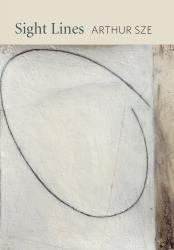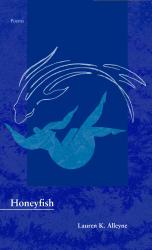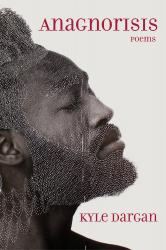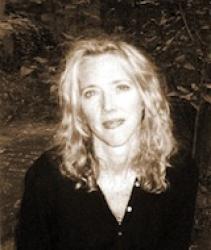


Much has changed in America and American poetry in the nearly forty years since Richard Howard published his expanded edition of 1969’s Alone With America: Essays on the Art of Poetry in the United States Since 1950. The 1980 table of contents itself tells a significant tale of those changes: forty-one poets under consideration, six of them women, not one a person of color.
I note this not to single out Howard for these egregious oversights, since the canon is legion with similar anthologies from this period privileging poetries in the white, Western, mostly male-dominated canon. As Howard himself states in his preface to the enlarged edition, he deliberately left “the [second iteration of the] book as it was [in the first edition], unplundered by hindsight,” acknowledging that “the perspectives of these essays date—that is perhaps their liveliest claim on our interest now, for without a history, what is any criticism?”
Howard’s essays do indeed “date” an unforgivably narrow historical literary world-view that poets, critics, and editors of the past ten years, in particular, have worked assiduously to remediate. But Howard’s title, Alone With America—taken from historian Perry Miller’s 1952 Errand into the Wilderness—continues to haunt with fresh prescience.
Miller’s well-known study explores the consciousness of the first European settlers in America as they began to evolve, often against their will, into something other than European: “They looked in vain to history for an explanation of themselves … . Thereupon these citizens found that they had no other place to search but within themselves … . Having failed to rivet the eyes of the world upon their city on the hill, they were left alone with America.”
The reciprocal exchange of energy—inward, outward—that poems (political and personal) depend upon seems contingent on there being some sort of remotely recognizable starting point, some “reality” to acknowledge, resist, transform. America has no doubt always been unrecognizable to many of its denizens—a nation in which it feels at times almost impossible—despite advances in technology and social networking—to feel anything but alone. That America often feels particularly obdurate for many citizens in our twenty-first-century moment poses particular challenges for poets attempting to write about it.
Each of the three books under consideration here—all written by people of color during, in spite of, and in response to a Trumpian political climate of denial and fear, a time of immigration chaos, escalating gun violence, and all manner of contentious gender, racial, and environmental imperilments—confronts in its own way what it means to create art in an especially unfathomable America.
Lauren K. Alleyne’s first book, Difficult Fruit, came out from Peepal Tree Press in 2014. Honeyfish, winner of the 2018 Green Rose Prize of New Issues Press, extends the project of Difficult Fruit—sonically rhythmic songs of ire, becoming, grief, petition, and longing for justice (and love) in a world of racial, cultural, and gender bias. Of the three texts under review here, it is perhaps the most fervently elegiac.
Many of the poems are written in memoriam for ghosted beloveds—lost family members and friends—or on behalf of victims of racial, gender, and other hate-based violence: historical figures such as Trayvon Martin, Alesha MacPhail, and Tamar Rice, but also mythical ones, like Io. Other poems concern terror: neo-Nazi and alt-right demonstrations, mass shootings, immigration wars, Klan rallies—anyplace “someone decides / to ignite America / into some again-burning / greatness.” A series of self-portraits allow us to see a speaker (daughter, lover, citizen) who is as vulnerable and passionate as she is angry: “I’m a woman with skin,” Alleyne writes in “Self-Portrait with Burning Crosses,” “that summons crosses and flames. / Which is to say I am always burning. / Which is to say I do not have enough / tears to put myself out.” Backlighting all of the poems is the exiled speaker’s own search for “home”—be it childhood, the islands of the Caribbean or Greece, America, a parent, a lover, or a song, the poem, itself:
The saltwater chorus
of the ocean. You sing
the harmony to her
nostalgic baseline,
close your present eyes
and slip in to a melody
easy and familiar as skin.
Call it home.
Written very much in and for the mouth, these poems work the range between elegy and ode—that is, between outraged grief and courageous praise. References to song, saying, music (symphonies, gongs, hoots, whistles), voice, and utterance resound in nearly every poem, and the effect can be keening,
The wails pour from us
wracked, wretched, we empty
ourselves like volcanoes …
and at other times talismanic, prayerful:
Who will chant your passing until your spirit is safe
across the stars, drifting one—
and will you rest?
While some of the poems conclude with phrases that can seem familiar, almost aphoristic—“Wait before wading / into the deep pool of regret” or “You’re still learning not to care” or “blossoms inside me breaking open” or “bewildered by this darkness, its strange stars”—it would be a mistake to miss the ardent, discerning use to which Alleyne puts her guarded trust in language’s ability to redeem anything. Two poems written about a seemingly out-of-its-element fish-shaped weathervane, one an ode and one an elegy, reveal a speaker who knows well both the wrenching dirge of the exiled:
…Stranded
so close to God, you spin in the place
where prayers rise, where dreams of home
take wind and take hold of you like hooks
yanking you—now this way, now that.
and the gracious hymn of resilience and change:
… Token, they whisper, freak.
But how you withstand the fickle
transformations of weather, read
the revolution wind scripts onto your body,
learn to move in its midst. Say evolve.
Say the first order of being is survival.
Say these gills will become lungs
and testify. Say thrive in any element
and name it possible.
Alleyne is a poet who carries an “ocean in [her] throat.” Again and again, her poems attempt to connect with or body forth something or someone whose absence owes to conditions of life in America. While this singer is a solitary one in many ways, she sings from a place of endangered but ever-renewing origins (“An ocean opens within you,” she writes in the book’s last poem, “Reading among the Ruins”), which must in part account for the generous, generative power of these poems of protest, polis, and petition.
When Kyle Dargan’s first book, The Listening, winner of the Cave Canem Prize, appeared in 2004, he was not yet two years out of undergraduate school and still matriculating in the MFA Program at Indiana. In that inaugural volume, Dargan was already delving into the issues of personal familial origins and dynamics, black identity, maleness, ethics, and citizenship—American and global—that he has continued to explore over nearly fifteen years in four subsequent books, including his most recent, Anagnorisis, published in 2018.
Though his impressive roster of publications and awards might suggest otherwise, Dargan is still a young man. He possesses, however, a proverbial “old soul,” and these most recent poems, many composed during recent years of American shamocracy, democracide, call it what you will, resound with bellwether clarity.
Dargan chose for the collection’s title a term from Greek tragedy that means, literally, “recognition”—that instance in classical drama when the protagonist, in a moment of gnosis, moves suddenly in a scales-fall-from-the-eyes kind of way from ignorance to knowledge, and the truth of certain identities or circumstance is revealed. This suggests the new depths of Dargan’s dread, anxiety, and concern about the future of the American experiment, particularly as it is played out in the lives of people of color. Though he’s interested in citizenship in cities especially—there are poems here about Los Angeles, New York, Beijing—Dargan is particularly focused on the nation’s capital (a Dee Cee realm of good and evil “comic book” real political figures and imagined avengers, of gun violence, of gentrification), where Dargan has spent much of his adult life.
As always, Dargan refuses simple demonization of any one person or party in his cautionary tales. And he’s always careful to implicate himself. In “Separating,” he admits he’s going to eschew cheap eggs harvested on industrial farms in favor of more expensive cage-free eggs (“A bourgeois privilege, I know. But if not to make that choice, // why else am I grinding myself down for these wages?”). In “XII. Early Onset Survivor’s Guilt,” the speaker confronts his remorse at being able to leave behind a pollution-shrouded Chinese city on a plane bound back to DC and “the blue [skies] I take for granted, the blue / I never asked to be born beneath.” In “Avenger,” for example, though the poem begins “Behind 1600s gates, the President sits bound / to the presidency like a superhero sidekick, / his mouth gagged by what ‘originalists’ believe, / the constitution says,” the poem concludes this way:
Somewhere is the negro’s imagined America,
where we have Iron Man on our side,
though it does not matter if the hero is “black”
so long as the body inside is. But super suits
and costumes don’t function like the Oval
Office. Vote a “black” man into a white house.
It’s still the White House—symbol of everything
we’ve been escaping—not a beacon, never rescue.
In a typical Greek tragedy, as parsed out by Aristotle, this moment of “anagnorisis,” of recognition, is followed swiftly by a reversal of fortunes that leads, ultimately, to the protagonist’s downfall and to the wrapping up of the dramatic arc. Here is Aristotle in the Poetics: “A tragedy is an imitation of an action that is complete in itself [with a] beginning, middle, and end … Every tragedy is in part Complication and in part Dénouement; the incidents before the opening scene, and often certain also of those within the play, forming the Complication; and the rest the Denouement. By Complication I mean all from the beginning of the story to the point just before the change in the hero’s fortunes; by Denouement, all from the beginning of the change to the end.”
Dargan is too smart to suggest that anything about the current crises in America can be neatly, however apocalyptically, concluded (“never [a] rescue,” as he says in the poem quoted above). Catharsis, a traditional outcome of classical tragedy, seems unlikely in the scenarios he depicts. Complicating any purely “tragic” categorization of this book is the dark humor that is everywhere in it—the titles alone suggest this—“Dave Chappelle Confuses George Washington with Thomas Jefferson” and “It’s Possible I’m Too Bougie to Be Free” or “In 2016, the African-American Poet Kyle Dargan Is Asked to Consider Writing More Like the African-American Poet Ross Gay.” Take, for example, “La Petite Mort,” in which the speaker proposes that instead of using real guns, the police are given “orgasm guns”: “I am reimaging the past / four years. Rather than queues of choppy footage // in which men and women are deaded / point-blank by the police, I see bodies // buckling and dropping to the pavement, / mouths gushing expletives though none in pain.” Still, despite the humor, the poet refuses to trust in his own ability to conjure this ulterior reality, confronting that the tragic reality is something that refuses catharsis of any kind:
I cannot afford to believe that someday
the State, these states, will stop shooting my cousins,
so let there be another weapon—one that induces
only the small death. Yes, my cousins would come
against their wills, but they would come back,
unlike this big leaving—this spasm without release.
Dargan’s meditations on darkness in America are illuminated by a section of the book that treats the poet/speaker’s experience of traveling in China as a creative delegate of the Chinese Writers Association. Poems like the sonnet-haunted “I. Economy Class” remind us that affliction is not the province of any one nation:
The woman had resisted for thirteen hours
before she began to vomit into the open
space between her ankles—her body crimped,
approaching the brace-for-impact posture.
Her face is now a tome of suffering.
Every wince another chapter. Every chapter
titled “It Is Hard to Be a Living Thing.”
To be born human is to be tendered
this challenge to live larger than your woe.
And, no, there will not be reward nor rationale
beyond our pesky belief that this mortal meal
should be more than a mouthful of bitter seeds
that prime our innards’ clenching—the purge
of what another day’s survival has fed us.
One takeaway from this marvelous, unsettling, illuminating book is Dargan’s statement in “Separating” that “I understand so much of blackness // as what I do in spite of my caging.” Identity, for Dargan, is finally more a matter of acts rather than of words. He says as much in “Looking East as a Man Repairs Lights on the South Street Pier,” in which the speaker reminisces: “[T]he shadow of the bridge / and Whitman’s words make a humble shroud. / If not the world’s, at least this nation’s / meaning spoke clearest to me here.” Later in the poem, Dargan writes,
Crossing, constant crossing.
Cross or be crossed. No malice in that—
either you’re crossing a line in this land
or becoming the line to be traversed.
These lines about lines suggest that the “anagnorisis” of this collection is not a death sentence but a line drawn/written in the sand—a line that one can, must, challenge, transgress, revise—in words, yes, but also in deeds.
A “sight line” is “a line extending from an observer’s eye to a viewed object or area (such as a stage).” The issue of an “unobstructed” view is particularly important to architects and designers of theaters, stadiums, and even cities, where sight lines are often algorithmically calculated for optimal audience engagement or to keep important landmarks from being obstructed. Sight Lines, Arthur Sze’s tenth book, is full of “lines”—lines that connect, lines that separate—power lines, calligraphic ink traces, razor wire, webs, threads on a loom, lines of poetry. With characteristic restraint, tensility, and subtlety, Sze takes a bead on America—its endangered lands; its manifold, multicultural populations; its distances and proximities, real and imagined. He does so with a quiet but perspicacious “seeing” that half reflects and half creates its constellar vision.
Each line of every poem in Sight Lines feels itself like a sight line, and Sze’s formal movement—paying out with each poetic line a distinct instance or cosmos, and further extending each line with an em dash, which is, in turn, itself a line—is one way that his poems enact the prodigious multiplicity and simultaneity of any one moment. The best way to show this may be to offer his technique in action, particularly evident in the title poem, in which time, place, danger, culpability, and desire blur and turn into one another in a temporal, sensory frisson:
“Sight Lines”
I’m walking in sight of the Rio Nambé—
salt cedar rises through silt in an irrigation ditch—
the snowpack in the Sangre de Cristos has already dwindled before spring—
at least no fires erupt in the conifers above Los Alamos—
the plutonium waste has been hauled to an underground site—
a man who built plutonium triggers breeds horses now—
no one could anticipate this distance from Monticello—
Jefferson despised newspapers, but no one thing takes us out of ourselves—
during the Cultural Revolution, a boy saw his mother shot by a firing squad—
a woman detonates when a spam text triggers bombs strapped to her body—
when I come to an upright circular steel lid, I step out of the ditch—
I step out of the ditch but step deeper into myself—
I arrive at a space that no longer needs autumn or spring—
I find ginseng where there is no ginseng my talisman of desire—
though you are visiting Paris, you are here at my fingertips—
though I step back into the ditch, no whitening cloud dispels this world’s mystery—
the ditch ran before the year of the Louisiana Purchase—
I’m walking on silt, glimpsing horses in the field—
fielding the shapes of our bodies in white sand—
though parallel lines touch in the infinite, the infinite is here—
And as if taking this remarkable measure of America—from its founding (Jefferson and Monticello), through its westward expansion and empire-building, its history of usurpation and greed, its consequential environmental ravishment and displacement of indigenous peoples—weren’t enough, Sze uses lines from this poem as section markers throughout the book, a signal that this poem is a touchstone, offering a way for reading the book as a whole. We learn in other poems that whether practicing a tai chi pose, writing on cement with water, peeling a lychee, worrying about the Earth (“Will this planet sustain ten billion people?” from “Doppler Effect,”), or recalling the aroma of a lover’s neck, we will always be boundary-crossing in time and place, so that the specter of white cloud nuclear holocaust abuts the violence of the Cultural Revolution which in turn transforms into a spam-triggered bomb attack, and all of this is played out—expanding and then contracting, panning out and coming in close—amid “stories” of deep delight in the beauty of this world, of erotic desire, and of the meaning of being in and out of time.
“The unfolding of a life has junctures / that rupture plot,” Sze writes in “The Far Norway Maples,” one of the most moving poems in the book. In it, a child carefully “folds paper / and glues toothpicks, designs a split-level // house with white walls and a pitched roof”—a lovingly made creation of a home that the child’s father then snatches up and burns. What Sze suggests at the close of this poem mirrors the general thematic float of the book as a whole—terrible and beautiful things are happening, always, in concert, across tremendous reaches, and it is how we choose to handle and move forward with that information that is the measure of who we are in the world:
If you inhale and spore this moment,
it tumors your body, but if you exhale it,
you dissolve midnight and noon; sunlight
tilts and leafs the tips of the far Norway maples.
Sze’s gift for the simple yet lushly delicate image—“a green turtle in broth is brought to the table” (from “Water Calligraphy”)—is almost unparalleled in contemporary poetry, and in Sight Lines the rich mix of this physical detail and metaphysical musing embodies Sze’s notions of life in our moment—contradictory, manifold, intimate, and more mysteriously crossed and recrossed, limned and transgressed, than we might at first imagine:
If all time converges
as light from stars, all situations reside here.
In red-edged heat, I irrigate peach trees;
you bake a zucchini frittata; water buffalo
browse in a field; hail has shredded lettuces,
and, as a farmer paces and surveys damage,
a coyote slips across a road, under barbed wire.
The players in this scene, this chord of a moment—the speaker irrigating peaches, the “you” baking a frittata, the farmer surveying the damaged lettuces, the coyote slipping beneath a fence—are all, finally, acting alone: alone in America, in subtly interrelated circumstances. Invisible but critical lines of history, affection, natural forces, and fate connect them. This poem recalls Kyle Dargan’s “Looking East as a Man Repairs Lights on the South Street Pier.” The speaker, solitary, watches an electrician in a harness hop over the side of the pier to “replace fizzled lights,” clearly nervous about “falling into the river—losing / his place in this country.” The speaker—who could be speaking for Alleyne and Sze as well as Dargan—concludes:
He knows
the boundaries we’ve imagined, we’ve drawn,
hold no authority beneath the water
—its undulating disregard for cartographer’s
ink that we are convinced defines us.







